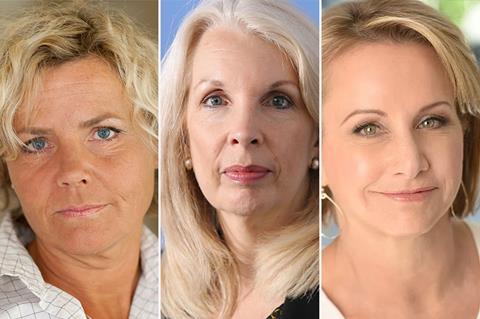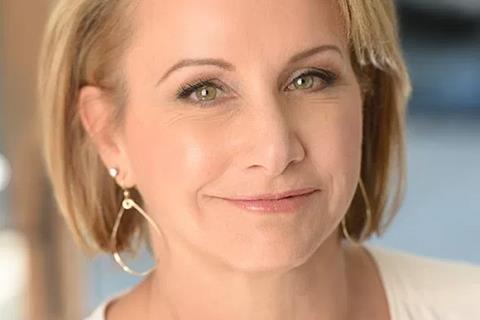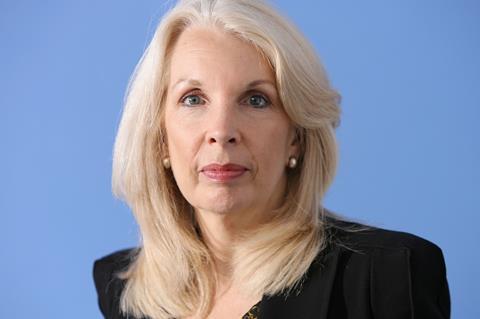
As reports of harassment within the industry grow by the day, a number of US and international business leaders are weighing up potential solutions.
Two weeks ago Lucasfilm president Kathleen Kennedy suggested the establishment of a commission to help change the culture of Hollywood, with “zero-tolerance policies for abusive behavior and a secure, reliable, unimpeachable system in which victims of abuse can report what’s happened to them with a confident expectation that action will be taken, without placing their employment, reputation and career at risk.”
“The organizations that constitute the American film industry — the studios, the unions, the guilds and the talent agencies — should immediately convene a commission charged with the task of developing new, industry-wide protections against sexual harassment and abuse.”
She said the commission would be composed of labour and management specialists as well as lawyers and legal scholars, sociologists, psychologists, feminist activists and theorists, as well as people who work in film and television.
The concept was supported by actress Jennifer Lawrence and director Ava DuVernay, among others.
Meanwhile, the Academy of Motion Picture Arts and Sciences will be establishing a new “code of conduct” for its members in the wake of the Harvey Weinstein scandals.
In an email to members, Academy CEO Dawn Hudson laid out the details and said the board would discuss the issue at December and January meetings.
Screen canvassed key industry executives in the US and international industry about what can be done to guard against harassment going forward, whose responsibility change must be, whether more regulation is needed and what obstacles are in the way of positive change.
Gabrielle Carteris, president, SAG-AFTRA

Screen: What concrete steps should the industry take to improve workplace conditions concerning harassment?
We’ve been giving this a lot of thought and are in discussion with industry leaders. It has become clear that these things are important:
1. Collaborate with industry partners to evaluate policies and practices to assess the structures in place to protect people facing these situations and to ascertain where gaps exist that need to be immediately addressed.
2. Work with industry partners to strengthen existing structures and establish new supportive practices and policies.
3. Empower and educate our members and all others who are striving to work in this industry
4. Strengthen available tools for people to report acts of harassment, anonymously if necessary, without fear of retaliation.
5. Ensure appropriate corrective measures are in place including holding perpetrators accountable.
Which organizations and/or companies can lead change?
We must all focus on what we can do now.
Ending the isolation and the culture of silence around assault and abuse is critical. We need to empower and give voice to those who are the victims of abuse and to those who witness it or are aware of it. We need to provide shelter for people to come forward and speak up. And we need to be prepared to address incidents immediately when they come to us.
Our Safety Hotline has been a valuable tool in providing an anonymous space for members to report abusive practices and assault and people use it.
When people do come forward, we provide information and support, and work with the performer to address their issue which in many instances involves them engaging law enforcement and other agencies.
In addition to industry partners, we are right now working with the International Federation of Actors (FIA), the AFL-CIO, and others to develop best practices and specific tool kits to educate and prepare labor leaders and members throughout the industry to better meet this challenge.
Would you welcome the concept of an independent watchdog or industry commission to help regulate the industry?
Yes, we welcome collaboration that furthers our collective goal of a workplace free of harassment and discrimination. We are reaching out to our industry colleagues right now to discuss various ways to work together on solutions and best practices.
Amanda Nevill, CEO, British Film Institute

What concrete steps should the industry take to improve workplace conditions concerning harassment?
We all, as employers, organisations and individuals have a responsibility to confront issues and take action. The challenge is how to make this easy to achieve, so people have confidence that there is a clear system they can turn to if necessary, and organisations have a confident understanding of how they are protecting their staff. Perhaps the only good thing to have come out of this ghastly situation is the brave surfacing of a much bigger, perfidious level of activity that was hidden from sight, and the way in which the industry has unanimously and immediately reacted with a determined desire to sort it out. So here at the BFI, we have asked for guidance from ACAS (The Advisory, Conciliation and Arbitration Service) to lead us and a larger industry group we have convened, to jointly develop and agree a new set of principles and a clear transparent system as fast as we can.
Which organisations and/or companies can lead change?
Change is only achieved if we all sign up to making it happen. But, it is made easier if a group of organisations can come together, work with experts to create a framework that is adoptable by all. Change will happen quickest if we all pull in the same direction. Our proposition is that the BFI Diversity Standards, which are already being embraced by the industry, will be extended to incorporate the new set of principles we are agreeing with the industry.
Would you welcome the concept of an independent watchdog or industry commission to help regulate the industry?
Regulation is an important question and of course the workplace and engagement of people is already governed by legalisation in the Equality Act. Through working with Acas, other employment leaders on inclusivity and leading organisations in the industry, we are looking to find the most effective routes to create change and help people to be better supported whether by ensuring there are stronger guidelines in place, educating people about existing legislation or by identifying other effective channels. All options will be considered but pre-empting our discussions with the experts would be premature at this stage.
Jean Prewitt, president, Independent Film & Television Alliance
“The conduct that’s been reported over the last few weeks is appalling and affects this industry as a whole, as well as others. However, the issue isn’t a lack of rules – the repeated patterns of abuse and victimization violate employment laws, criminal statutes and internal company workplace regulations. As illustrated by the NDAs and payments, the abusers understand that all too well. They thrive on the persistent imbalance of economic power in our industry which forces newcomers to accept the unacceptable in order to work. Eliminating that imbalance — so that financial and creative power over the production process is held across the spectrum of gender, race and other differences – is the only fix for this conduct in the long-run and this should be the priority in terms of the work we all need to do.
In the interim, every organization, company and individual should be encouraged to talk and to think about how workplace abuse presents itself in their own environment and how to respond to reports of incidents with respect and serious intent. But new industry-wide codes of conduct and institutional watchdogs are redundant of existing laws and the justice system, and they seem likely to distract from the real lessons here: Hollywood is not special, does not deserve its own rules, and the red carpet does not excuse illegal behavior.
The problems are industry-wide and the solutions will be as well.”
Daniela Elstner, managing director Doc & Film International and president of French sales agent organisation ADEF (Association des Exportateurs de Film)
“First of all, sexual harassment is not a problem only concerning our business: it is an overall problem. The more women and men, and especially young women and men, speak out loudly, the better. But if they do so, they have to be taken seriously. As a woman in my forties, I belong to a generation that has inherited great freedoms, including sexual freedom and the ability to have a professional and personal life. And maybe because we have needed to be strong in order to control these freedoms, any failure in this system has been deemed to be our fault, our weakness. For my daughter’s generation, I really hope that this is going to change.
“Anything a woman or man relates concerning sexual harassment has to matter, and there should be no discussion of the frontier between what is politically correct or not. We have to be very careful with the upcoming generation’s online presence because that opens a whole new world for opportunities of sexual harassment.
“Concerning the workplace, the more women that are in important positions, the easier it will be to control wrongdoing of this kind; not because women are necessarily better human beings, but because of the balance of power between the two genders. I try to make no difference in my own company, and to find the right balance within my employees between the two genders.
“We should teach the younger generation of what is acceptable. To make it very clear that if a client asks you to come up to his room for a discussion, you have the right to say no and you should report this: not only telling your best friend, but your boss. And if your boss does not take it seriously, then there should be the possibility to see someone else in the company or elsewhere who will take it seriously. No actress should be obliged to show her body naked if only one man is present in the room. The doors of a meeting room should never be closed. I have a certain way of explaining our job of a sales agent to my new trainees and sales persons, but I never addressed what can actually happen with regards sexual harassment. In the future, I will include this in my discussion with them.
Who should lead change?
Every company should lead change. Every single person should lead change. As parents we should lead change. And each of us should constantly ask ourselves why we didn’t say anything about impropriety that we may have witnessed.
Would you welcome the concept of an independent watchdog or industry commission to help regulate the industry?
I do not know if you can regulate the deep connection between power and sex. But we should definitely think about the possibility of a watchdog that allows victims to speak out without thinking that their careers might be ruined. We need a safe space where things can be told. Maybe the industry could come up with a space with volunteers and psychologists during each of the big festivals and events.
I can tell from my own experience that there is nothing worse than being laughed at after someone tried to rape you. It definitely haunts your memory even more than the incident itself.
David Andrews, partner and head of Employment Group at law firm Lee & Thompson
Are you seeing an increase in harassment complaints coming to Lee & Thopmson?
No, not yet. I believe this can be explained due to several factors. (1) most of the publicity surrounds very high powered film producers or actors who have been preying on talent (actors etc.) and budding talent – this is not therefore seen as an employment issue (as the talent is not employed by the production company); (2) the current approach of victims appears to be to complain to the Police and to simply name and shame their attackers; (3) you are obliged to bring claims for sexual harassment to the Employment Tribunal within 3 months of the act occurring, which will place a huge obstacle in the way of any employee who wishes to consider a claim relating to a historic issue; and (4) having spoken to many workers within the industry, there is still a feeling that normal employees (i.e. those who are not senior executives with a stake in the business), crew members and junior talent do not have the power to stand up to harassers within the workplace, who often hold (and abuse) positions of power (Harvey Weinstein being a perfect example) – there is a fear that they will be excommunicated from the industry if they try to stand up against harassers or go down the litigation route.
Do you think the film industry could do more to understand harassment laws?
Yes, most production companies are too small to have good HR professionals (or any at all) and have not invested in educating themselves (via their lawyers or good experienced HR Consultants) or their staff concerning the laws or indeed appropriate and inappropriate behaviour within the workplace. Then you add into the equation the long working hours alongside colleagues, frequent periods of working away from home and occasional (or in some cases frequent!) reliance on alcohol and/or drugs to wind down or deal with stress etc, and the risks of inappropriate behaviour multiply. As a result, the behaviour within the workplace is often inappropriate in a lot of ways. Strict ground rules and frequent reminders of codes of conduct (including non-harassment at work) would reduce the risks, but I see very little sign of such measures being taken. Many production companies are run on a shoestring budget and do not see non-harassment training a worthy investment. Sadly, it is also true that some of the culprits are in charge of the production companies (if the allegations against Weinstein and Roy Price, the Head of Amazon Studios, are accurate) and the culture will never be good if the example they are setting to their staff is poor.
What are some of the obstacles in the way of greater film industry regulation concerning harassment?
The industry has to stop seeing the preventative measures as too expensive and too burdensome. Funding is a major obstacle. A desire to change is also another obstacle – how many productions companies are now actively taking steps to change their culture and ensure that harassment is stamped out? Not very many in my experience. How many production companies are willing to admit to having problems with senior executives harassing staff or talent, and to then take steps to deal with the behaviour and sack the culprits to protect the victims? Too many rumours of inappropriate behaviour go without being investigated, particularly when the executives concerned are in positions of power or creating successful shows or films, such that their continued presence is worth the detrimental working environment and the risks of harassment claims. Change will not take place until the industry is willing to accept at grass roots level that it has a problem and is then willing to invest funds on culture change and workplace training, and the investigations necessary to weed out the culprits. The laws (criminal laws and employment laws) are in place to prevent harassment and they would be adequate to deal with issues if victims felt supported enough to come forward and production companies were willing to sack executives who harass persons with whom they have contact as part of their jobs (whether employees, crew or talent). Equal opportunities policies, dignity at work (i.e. non-harassment) policies, training, conscious oversight of behaviour and culture, investigations into allegations and appropriate action against culprits are the essential building blocks for change.
Anna Serner, CEO, Swedish Film Institute

What concrete steps should the industry take to improve workplace conditions concerning harassment?
1. Make clear rules of what is accepted behaviour.
2. Communicate them from top management.
3. Start sincere conversations with all employees about the climate at the workplace. Do it in smaller groups. If needed get help to do this.
4. If it turns out that there are problems, make action plans about how to get rid of them. Make clear to people who don’t contribute to better conditions that that is not acceptable.
Which organisations and/or companies can lead change?
The bigger and more powerful ones should lead the way by making public statements. But every organisation has to start working on this.
Would you welcome the concept of an independent watchdog or industry commission to help regulate the industry?
I think the media has an important role to play here as independent watchdogs. In Sweden they are really scrutinising industry after industry. So hopefully there are already ways for whistle-blowers to get attention. And in Sweden we have an ombudsman dot it as well. Other countries could take a look on that.

























No comments yet